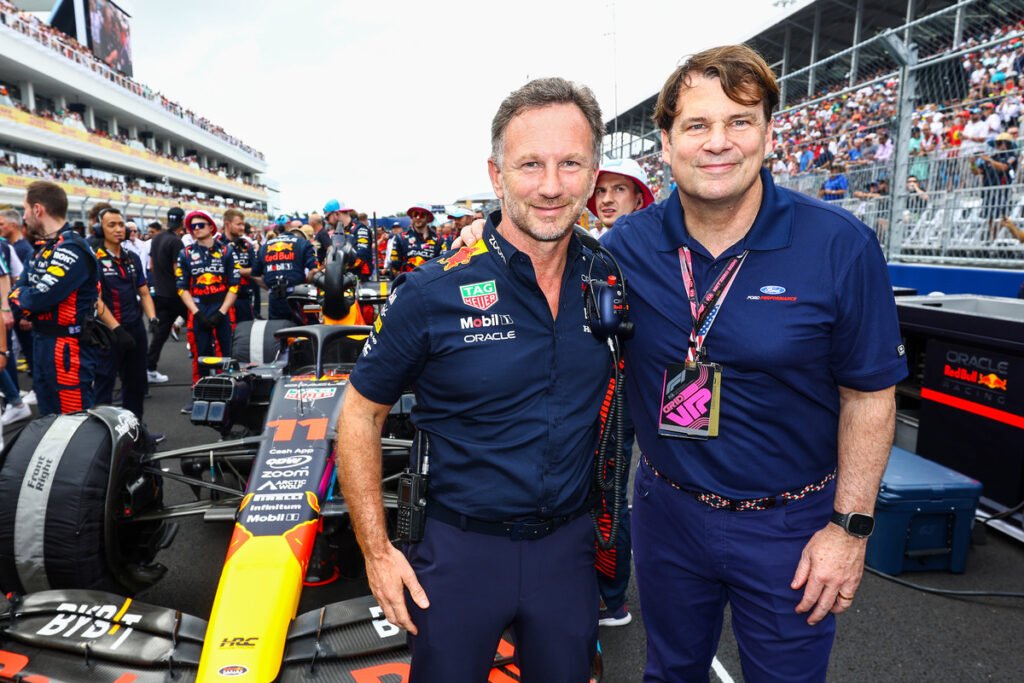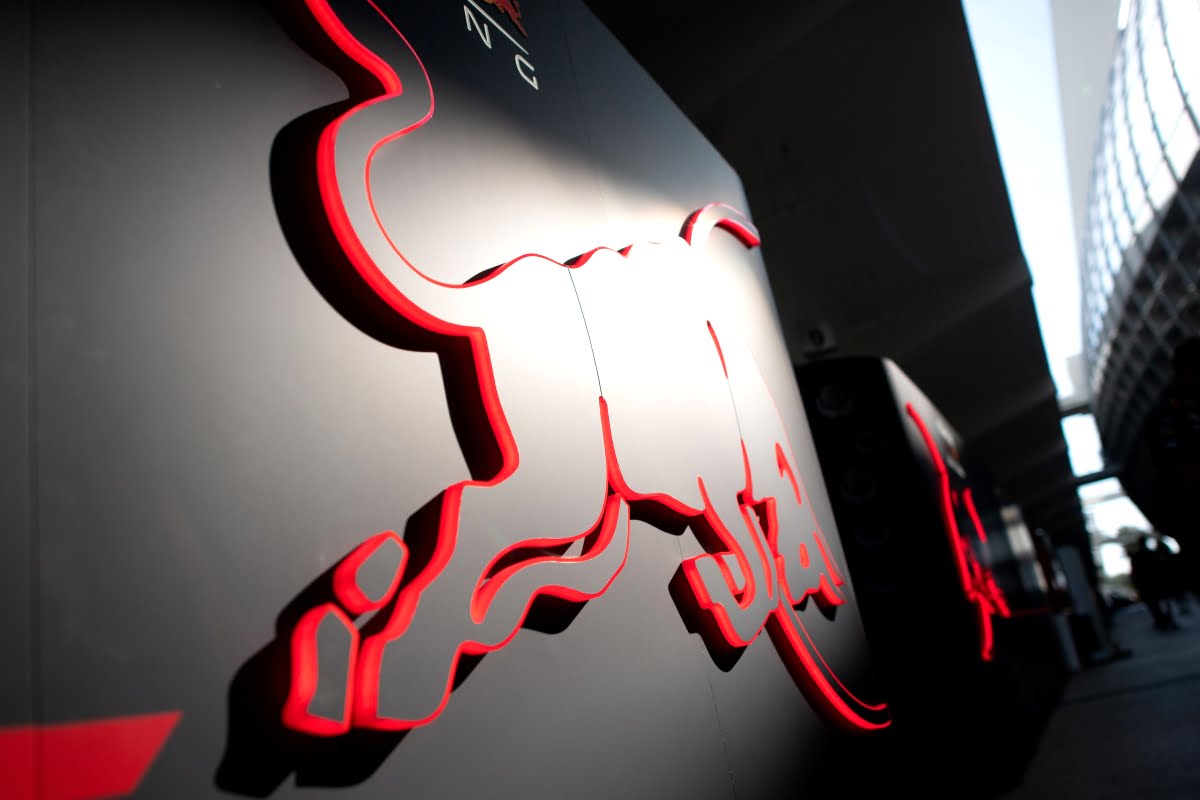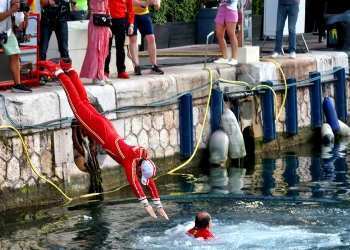Ford isn’t concerned with the experience deficit it and partner Red Bull boasts compared to other Formula 1 engine manufacturers as it works towards the 2026 rules.
The American automotive brand will provide technical and financial input to Red Bull’s Powertrains division as the pair collaborate on the modified engine regulations.
But despite revealing the squad was on target with the venture, Red Bull Team Principal Christian Horner conceded it will uphold a “70-year disadvantage to Ferrari”.
However, Ford, which will return to F1 for the first time since 2004, is convinced that being able to fixate on the impending rule change will help it bridge that shortfall.
Ford’s Global Motorsports Director Mark Rushbrook told Motorsport.com in Miami: “It’s Formula 1, it’s always going to be challenging.
“It is absolutely true that at Ferrari they have the knowledge, all the people and all that experience in a system that already works. So yes, they might have an advantage with that.
“But I would say that one of the things though where we have an advantage is the team that is working on the power unit for us,
for 2026, is only working on the power unit for 2026. They are not working on the power units for today.”

Rushbrook ratified Horner’s words about the progress Ford and Red Bull was making but admitted that it could not guarantee that would be enough to be competitive.
“Early in any programme you set goals and milestones, and we are hitting our own goals and milestones at the moment,” he confirmed.
“But the pace in Formula 1 is so much faster than in any other form of motorsport that we are in.
“It is just full-throttle all the way, from the very beginning of the development until 2030, so until we are done racing this set of regulations.”
Regarding speculation that Red Bull was behind compared to the incumbent manufacturers, Rushbrook reiterated that it is on course to hit the internal goals outlined.
“What I will say is that we set our own goals for the development of this power unit based upon experience and what we felt that is needed to be successful in 2026,” he said.
“We have no idea where the competition is or what their progression curve is. So a direct comparison to the competitors we don’t have.
“But for the comparison to what we believe is needed to be successful, we are in a good place.”
Although Ford has been tasked with assisting with the electrical side of the next-generation power units, Rushbrook revealed it has been using its expertise elsewhere.
“We have a technical interface from my team directly with the campus in Milton Keynes to contribute in many different areas,” he explained.
“The internal combustion engine and the turbo weren’t on the initial list, but there is a lot of knowledge that we have with modelling and testing that can help, so that has been engaged and employed as well. Our main focus though is in the electrification, that is a big opportunity.”









